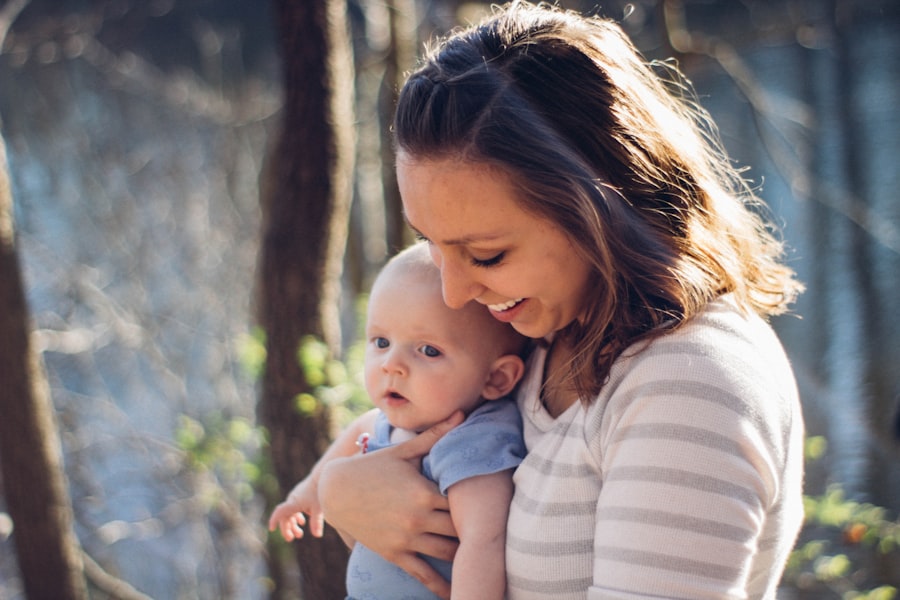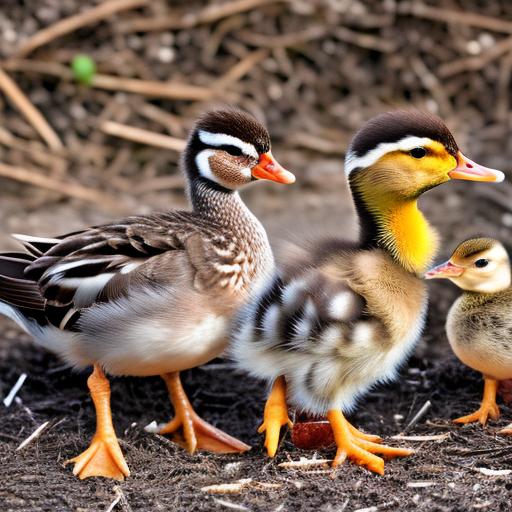Raising baby ducks and chickens together can be a rewarding and enjoyable experience. Not only do these adorable creatures provide fresh eggs and entertainment, but they also have unique characteristics that make them fascinating to observe. As someone who has raised both ducks and chickens together, I can attest to the joy and challenges that come with this endeavor.
When I first decided to raise ducks and chickens together, I was drawn to the idea of having a diverse flock that would provide a variety of benefits. Ducks are known for their ability to forage for insects and slugs, while chickens are excellent at scratching the ground and keeping pests at bay. Additionally, ducks are known for their friendly and curious nature, while chickens are more social and enjoy the company of others. These differences in behavior and characteristics make for an interesting dynamic within the flock.
Key Takeaways
- Raising baby ducks and chickens together is possible and can be beneficial.
- Baby ducks and chickens have different needs and behaviors.
- Both baby ducks and chickens require similar feeding and housing options.
- Keeping baby ducks and chickens together can reduce loneliness and increase socialization.
- Challenges such as different water needs and potential aggression must be considered when keeping them together.
Differences between baby ducks and chickens
While baby ducks and chickens may appear similar at first glance, there are several key differences between the two species. Physically, ducks have webbed feet and a flat bill, while chickens have claws and a pointed beak. Ducks also have waterproof feathers, which allow them to swim and stay dry in water, while chickens have feathers that are not designed for water resistance.
Behaviorally, ducks are more independent and tend to wander off on their own, while chickens prefer to stay in groups and follow a leader. Ducks are also known for their love of water and swimming, while chickens are not as inclined to take a dip. This difference in behavior can impact their environmental needs as well.
In terms of environmental differences, ducks require access to water for swimming and cleaning themselves, while chickens do not have the same need. Ducks also produce more waste than chickens due to their watery diet, which can impact the cleanliness of their living space.
Similarities between baby ducks and chickens
Despite their differences, baby ducks and chickens have several similarities when it comes to their basic needs and social behavior. Both species require food, water, and shelter to thrive. They need a balanced diet that includes a mix of grains, protein, and fresh greens. They also need access to clean water for drinking and bathing.
Socially, both ducks and chickens are flock animals and thrive in the company of others. They establish a pecking order within their group, with dominant individuals taking charge and others following their lead. This social hierarchy helps maintain order within the flock and ensures that everyone has their place.
Both ducks and chickens are also vulnerable to predators, such as foxes, raccoons, and birds of prey. It is important to provide them with a secure enclosure or coop to protect them from potential threats.
Advantages of keeping baby ducks and chickens together
Keeping baby ducks and chickens together has several advantages. Firstly, they provide companionship for each other. Ducks and chickens can form strong bonds within their flock, providing comfort and security. They often sleep together in close proximity, which helps regulate their body temperature during colder nights.
Another advantage is the reduced risk of predation. Ducks have a natural instinct to be on alert for predators, and their loud quacking can alert the entire flock to potential danger. Chickens also have a keen sense of danger and will sound the alarm if they sense any threats. By keeping ducks and chickens together, you create a more vigilant flock that can help protect each other from predators.
Additionally, keeping ducks and chickens together allows for efficient use of space and resources. Ducks are excellent foragers and can help keep the grass and insect population in check. Chickens, on the other hand, are great at scratching the ground and turning it over, which helps aerate the soil. By combining these two species, you can maximize the benefits they provide to your garden or yard.
Challenges of keeping baby ducks and chickens together
While there are many advantages to keeping baby ducks and chickens together, there are also some challenges to consider. One of the main challenges is the difference in dietary needs. Ducks require a higher protein diet compared to chickens, especially during their growing stage. They also need access to water for swimming and cleaning themselves, which can be a challenge if you do not have a suitable setup.
Another challenge is the difference in housing requirements. Ducks need access to water for swimming, so their living space should include a pond or shallow pool. Chickens, on the other hand, do not have the same need for water and can be housed in a traditional chicken coop. Finding a suitable setup that meets the needs of both species can be a challenge.
Lastly, there is the potential for aggression or bullying within the flock. Ducks and chickens have different social dynamics, and it is possible for one species to dominate or bully the other. This can lead to stress and injury within the flock if not managed properly.
Feeding requirements for baby ducks and chickens

Feeding baby ducks and chickens requires careful consideration of their different nutritional needs. Ducks require a higher protein diet compared to chickens, especially during their growing stage. This is because ducks need more protein to support their rapid growth and development.
There are several feeding options and strategies that can be used to meet the dietary needs of both species. One option is to provide a balanced poultry feed that is suitable for both ducks and chickens. This feed should have a higher protein content to meet the needs of the ducks, while still providing adequate nutrition for the chickens.
Another option is to supplement their diet with additional protein sources. This can include offering mealworms, crickets, or other insects as treats. You can also provide fresh greens, such as lettuce or spinach, which are rich in vitamins and minerals.
It is important to monitor their feeding habits and adjust their diet as needed. Ducks and chickens have different appetites and feeding behaviors, so it is important to ensure that each individual is getting enough food.
Housing options for baby ducks and chickens
When it comes to housing baby ducks and chickens together, there are several design considerations to keep in mind. Firstly, the coop and run should be spacious enough to accommodate both species comfortably. Ducks require more space due to their larger size and need for water access.
The coop should also have separate areas for nesting and roosting. Ducks prefer to nest on the ground, while chickens prefer elevated nesting boxes. Providing separate areas for nesting will help prevent any conflicts between the two species.
Water is an essential requirement for ducks, so their housing should include a pond or shallow pool. This can be a separate area within the run or integrated into the overall design of the coop. The water should be clean and regularly maintained to ensure the health and well-being of the ducks.
Health considerations for baby ducks and chickens
Keeping baby ducks and chickens healthy requires regular monitoring and preventative measures. Both species are susceptible to common health issues, such as respiratory infections, parasites, and injuries.
It is important to provide a clean and dry living environment for both ducks and chickens. Regularly cleaning their coop and run will help prevent the buildup of bacteria and parasites. Providing fresh bedding material, such as straw or wood shavings, will also help maintain cleanliness.
Regular health checks should be conducted to monitor for any signs of illness or injury. This includes checking their eyes, beaks, feathers, and feet for any abnormalities. Any concerns should be addressed promptly to prevent the spread of disease or further injury.
Preventative measures, such as vaccinations and parasite control, should also be implemented. Consult with a veterinarian or poultry expert to determine the appropriate vaccinations and treatments for your flock.
Social dynamics between baby ducks and chickens
Understanding the social dynamics between baby ducks and chickens is important for managing their interactions within the flock. Ducks and chickens have different social behaviors and hierarchies, which can impact their overall well-being.
Ducks are more independent and tend to wander off on their own, while chickens prefer to stay in groups. This difference in behavior can sometimes lead to conflicts within the flock. It is important to provide enough space and resources to prevent competition and aggression.
One strategy for managing social dynamics is to introduce the ducks and chickens at a young age. This allows them to grow up together and establish their hierarchy from an early age. It is also important to provide enough food and water sources to prevent competition.
If conflicts do arise, it may be necessary to separate individuals or provide additional resources. This can help alleviate any stress or aggression within the flock. Monitoring their interactions and behavior on a regular basis will help identify any potential issues before they escalate.
Is it possible to keep baby ducks and chickens together?
In conclusion, it is possible to keep baby ducks and chickens together, but it requires careful consideration of their unique needs and characteristics. While there are challenges to overcome, such as different dietary needs and housing requirements, the benefits of keeping these two species together can outweigh the challenges.
The companionship between ducks and chickens can provide entertainment and comfort for both species. They can also help protect each other from predators and make efficient use of space and resources.
However, it is important to be prepared for the challenges that may arise. Providing a balanced diet, suitable housing, and managing social dynamics are key factors in successfully raising baby ducks and chickens together.
As someone who has raised both ducks and chickens together, I highly encourage others to try it out for themselves. It is a rewarding experience that allows you to observe the unique behaviors and characteristics of these fascinating creatures. With proper care and attention, raising baby ducks and chickens together can be a fulfilling and enjoyable endeavor.
If you’re considering keeping baby ducks and baby chickens together, it’s important to understand the unique needs of each species. While they can coexist in the same coop and run, there are certain considerations to keep in mind. For a comprehensive guide on how to successfully house baby ducks with baby chickens, check out this informative article from Poultry Wizard. It provides valuable insights and practical tips on creating a suitable environment for both species to thrive together. To learn more, visit https://poultrywizard.com/keeping-chickens/chicken-coop-run-plans/.
FAQs
Can you keep baby ducks with baby chickens?
Yes, it is possible to keep baby ducks with baby chickens.
What are the benefits of keeping baby ducks with baby chickens?
Keeping baby ducks with baby chickens can provide socialization and companionship for both species. It can also help with pest control as ducks are known to eat insects.
What are the challenges of keeping baby ducks with baby chickens?
One of the challenges of keeping baby ducks with baby chickens is that ducks require more water than chickens. This means that their living space needs to be set up in a way that allows for easy access to water. Additionally, ducks may be more susceptible to certain diseases that chickens can carry.
What should be considered when setting up a living space for baby ducks and baby chickens?
When setting up a living space for baby ducks and baby chickens, it is important to provide enough space for both species to move around comfortably. Additionally, the living space should be set up in a way that allows for easy access to water for the ducks. It is also important to keep the living space clean and dry to prevent the spread of disease.
What should be fed to baby ducks and baby chickens?
Baby ducks and baby chickens have different dietary needs. Ducks require a higher protein diet than chickens, so it is important to provide them with a feed that is specifically formulated for ducks. Chickens can eat a variety of feeds, including chick starter and grower feeds. It is important to provide both species with fresh water at all times.
Meet Walter, the feathered-friend fanatic of Florida! Nestled in the sunshine state, Walter struts through life with his feathered companions, clucking his way to happiness. With a coop that’s fancier than a five-star hotel, he’s the Don Juan of the chicken world. When he’s not teaching his hens to do the cha-cha, you’ll find him in a heated debate with his prized rooster, Sir Clucks-a-Lot. Walter’s poultry passion is no yolk; he’s the sunny-side-up guy you never knew you needed in your flock of friends!







